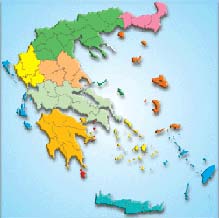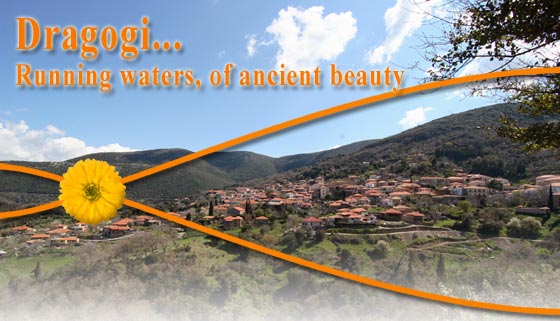
Please click on the map,
the region you want to visit |
|
|
|
|
| |
|
 |
Dragogi |
|
 |
Dragogi, built on the foundations of the ancient water tower, whose name is a corruption of the ancient works. According to legend, neighboring Ancient Phigaleia quenched its thirst from the springs of this place.
The ties this site has with the element of water are perpetual. It is located above the crystal clear waters of the river Neda, and even today it listens in on the song of the bride, likewise named Neda, who "purls" her glories of the past, when she rescued newborn Zeus from his bloodthirsty father Cronus with his baby-killing hands. That's why the river was given her name, for the first time ever was a river given a female name, a unique honor for her unique courage.
It was an incredible fighting place during the years of the sacred struggle for Independence, an impregnable passage and hideout for the forces of the klephts [brigands] and a den for the captaincies of the "Tzavella" brigands. In this way Dragogi offered invaluable services to the nation. Now in peacetime, it reminisces about its past glories, with its settlements Boika and Kastrougaina as company.
Bordering with the ancient sacred mount Kotylio, Dragogi is built under the protection of the famous temple of Epicurean Apollo which has stood perpetually at the location of Vasse. The temple, an unequalled masterpiece of maturity of the unrivalled architect Iktinos and aptly called "The Parthenon of the Peloponnese" is the epitome of ancient, flourishing Greek architecture.
An impressive archeological monument, renowned the world over, and with an invaluable cultural heritage, the temple of Epicurean Apollo, "who consents and succours", makes one look in awe and amazement for its perfection, size and symmetry.
|
|
|
 |
Accommodation proposals, entertainment and shopping in Andritsena |
|
Texts - Information: Andritsena Municipality
Photographs: Nikos Papadopoulos |
|
|